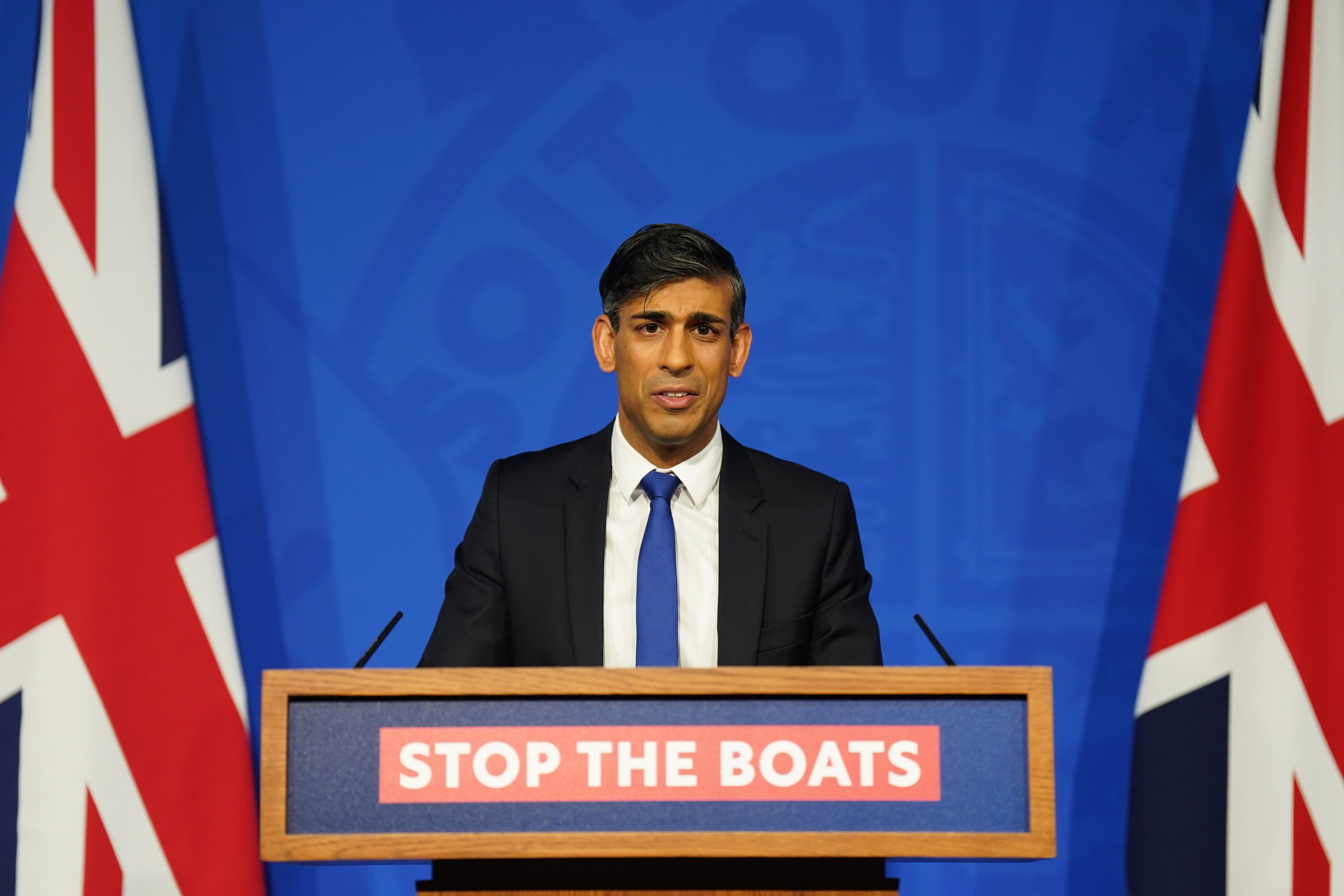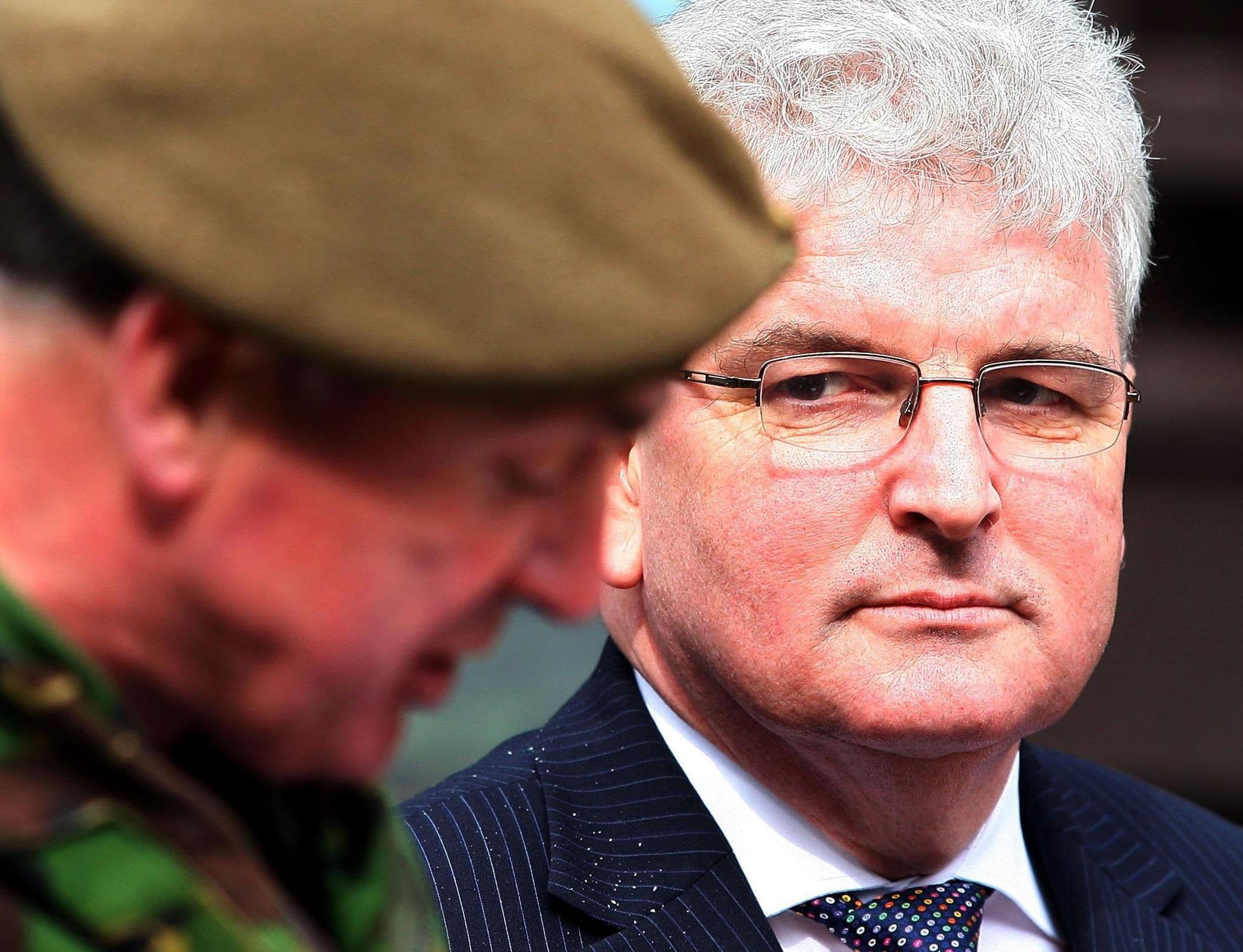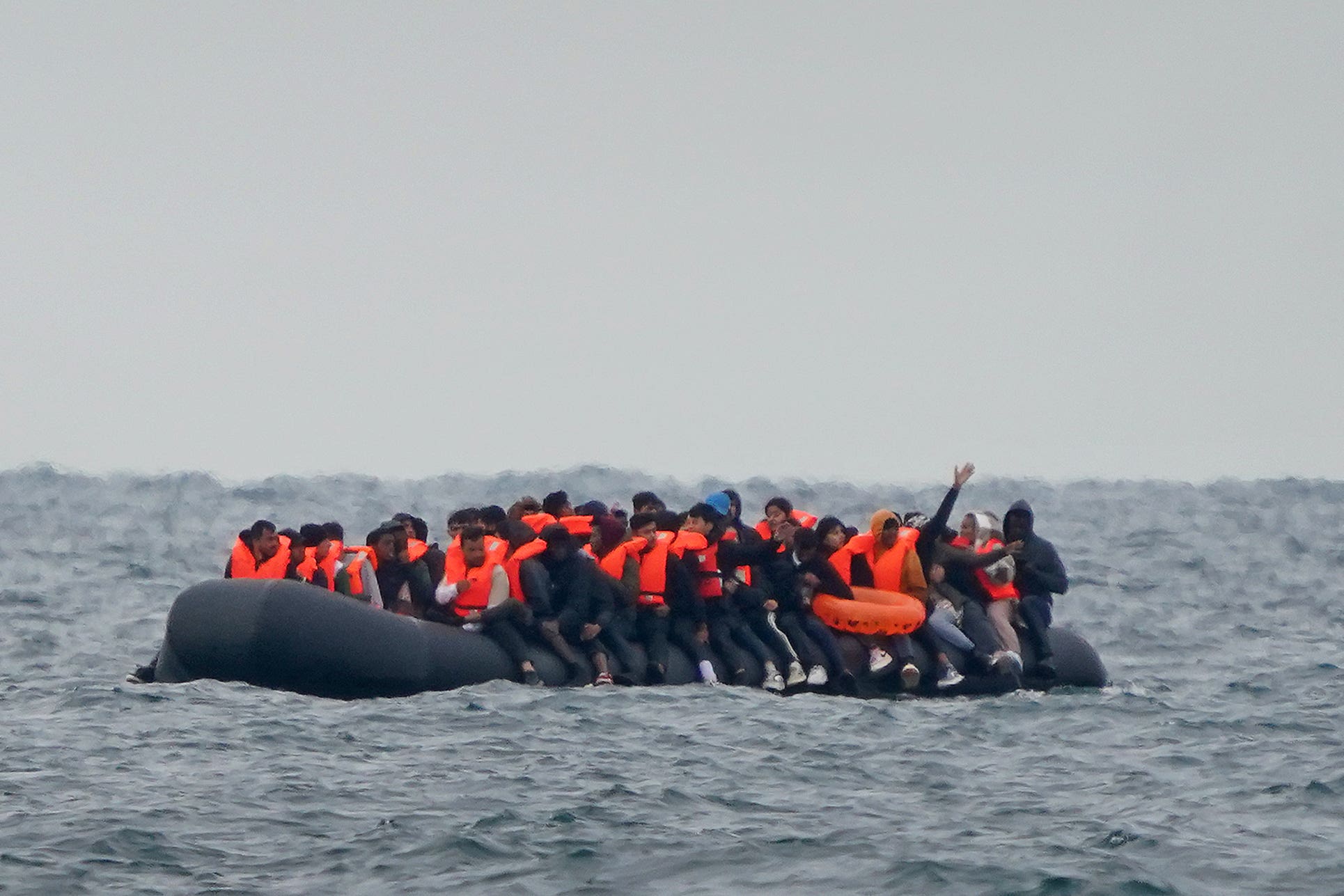Rishi Sunak to warn peers to back Rwanda bill at surprise press conference ahead of showdown in parliament
Weeks of parliamentary back-and-forth are set to come to a head on Monday night.
Rishi Sunak will urge peers to back his Rwanda plan at a surprise press conference ahead of a final parliamentary showdown.
The prime minister will address the country from Downing Street at 10.30am ahead of crunch votes on the legislation aimed at making the plan to send asylum seekers on a one-way trip to Rwanda legally watertight.
Weeks of parliamentary back-and-forth are set to come to a head on Monday night.

The government has vowed to keep parliament sitting late into the night if necessary to pass the Safety of Rwanda (Asylum and Immigration) bill, which it sees as vital to the Prime Minister’s pledge to “stop the boats”.
Mr Sunak will use the press conference on Monday morning to underline why he believes the legislation is vital to his plan to curb small boat crossings of the English Channel. He will also set out an operational plan to get flights to Rwanda off the ground more than two years after the deportation policy was announced by Boris Johnson.
Peers have repeatedly blocked the legislation with a series of amendments, stretching debate on the “emergency legislation” over more than four months and delaying flights taking asylum seekers to Rwanda.
And a leading lawyer who sits in the Lords has promised to “keep going as long as necessary” to amend the “ill judged and inappropriate” bill.
Lord Carlile, the former independent reviewer of terrorism legislation, said the PM is “asking parliament to say that an untruth is a truth”.
The crossbench peer told the BBC: “The Supreme Court has held, for the time being at least, that Rwanda is not a safe country.
“It is still the case that Rwanda has not implemented all the promises made in the treaty it reached with the United Kingdom.”
He said one of the key amendments peers are fighting to add to the bill would simply “require the home secretary to make a statement to parliament that Rwanda either complies with the treaty or does not”.
“That is hardly a demanding requirement of the secretary of state,” Lord Carlile added.
He also accused Mr Sunak of not understanding the role of the House of Lords, adding that peers are “perfectly entitled” to fight the bill because it was not in the Tory manifesto.
“This is something which is ill-judged, badly drafted, inappropriate, illegal in UK and international law and the House of Lords is absolutely right to say we want to maintain our legal standards in this country,” he added.
Mr Sunak is also under pressure to allow an amendment which would exempt Afghan heroes who supported UK troops overseas from being deported.

The Independent has documented several cases of asylum seekers who supported the UK armed forces efforts in Afghanistan and who have since been threatened with removal to Rwanda after arriving in the UK via small boat.
Downing Street is hostile to the idea of making concessions to secure the passage of the bill, leading to a deadlock with the Lords.
And deputy foreign minister Andrew Mitchell heaped praise on the “remarkable” Rwandan regime, insisting the country has “come back from the abyss” over 30 years and is now safe.
He urged peers to back the bill and said further “ping pong” between the Commons and the Lords was “not the right way to proceed”. And, speaking to the BBC, Mr Mitchell even said the capital of Rwanda is safer than London.
He said: “The remarkable regime in Rwanda over the last 30 years has come back from the abyss - a country completely destroyed by the genocide.
“It is absolutely extraordinary what the Rwandan government has achieved in all walks of life. It is a safe country. And indeed, if you look at the statistics, Kigali is arguably safer than London.”
The bill is intended to overcome the objections of the Supreme Court by forcing judges to treat Rwanda as a safe country for asylum seekers and allowing ministers to ignore emergency injunctions from the European Court of Human Rights.
Mr Sunak has already expressed his frustration, saying last week his patience with those blocking the bill had “run thin”, adding: “No more prevarication, no more delay. We will sit there and vote until it’s done.”
But former home secretary Suella Braverman said the legislation is "fatally flawed" and has "too many loopholes", arguing that leaving the European Convention on Human Rights was the only way to clear the legal hurdles.
Ms Braverman said the current Bill was vulnerable to "last-minute injunctions" by the European Court of Human Rights and susceptible to "illegal claims clogging up the courts", telling Today: "The simple fact is this is our third Act of Parliament that the Government has introduced in four years to stop the boats.
"None of them have worked - none of them have worked because they are all still susceptible to the international human rights law framework contained in the European Convention on Human Rights judged by, and adjudicated by, the European Court of Human Rights in Strasbourg - that's the problem, and that's why I've been calling for a few years now to leave the European Convention on Human Rights."
Last week saw peers amend the bill yet again to include an exemption for Afghan nationals who assisted British troops and a provision meaning Rwanda could not be treated as safe unless it was deemed so by an independent monitoring body.

On Monday, MPs are expected to vote to overturn those changes before sending the bill back to the House of Lords, where some peers may attempt to insist on their amendments again.
If so, the bill would return to the Commons late on Monday for a further vote and then return once again to the Lords in a process known as “ping pong” that could last well past the Commons’ usual 10.30pm finish.
If peers pass exactly the same amendment twice, however, the Commons faces the choice of either accepting the change or losing the bill under a rarely-used process known as “double insistence”.
Crossbench peer and former independent reviewer of terrorism legislation Lord Anderson has raised this possibility and described the legislation as a “post-truth bill” that asks Parliament to declare Rwanda is safe when, he argued, it is not.
Join our commenting forum
Join thought-provoking conversations, follow other Independent readers and see their replies
Comments
Bookmark popover
Removed from bookmarks